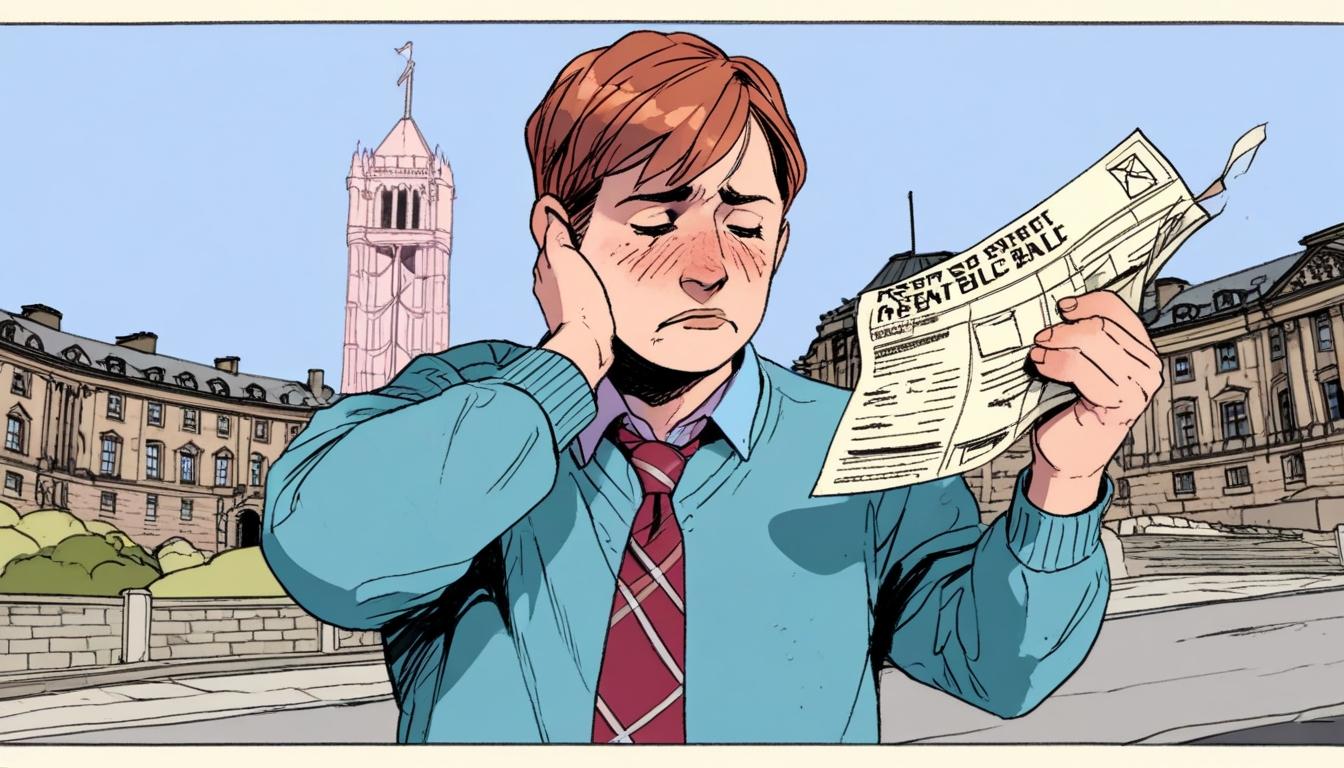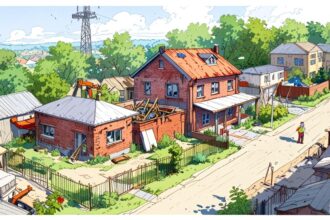The Scottish Greens propose amendments to apply stricter rent caps, including during tenancy gaps, promising significant savings for tenants amid soaring rents. The move challenges the Scottish Government’s CPI-plus-1% cap, with the Local Government Committee set to vote on the contentious changes.
The ongoing debate over rent control in Scotland is intensifying, as proposed amendments from the Scottish Greens are set to be scrutinised and voted on by the Local Government, Housing and Planning Committee on Tuesday. The proposals differ significantly from the Scottish Government’s outline, which stipulates that rent increases should be capped at the annual consumer price index (CPI) rate of inflation plus 1%, up to a maximum increase of 6%.
If adopted, the proposed cap from the Scottish Greens would apply not only to rent increases during the first term of a tenancy but also during periods between tenancies. The impetus for this alteration comes as rising rents continue to impact tenants across the country. Independent analysis from the Scottish Parliament Information Centre (SPICe) indicates that over the five years from 2019 to 2024, the average market rent in Scotland jumped from £681 to £893—a staggering increase of 31%.
The SPICe assessment further suggests that had the Scottish Government’s model of linking rent increases to average earnings been implemented, rent would have risen to £799 by the end of the same period—a 17% increase. This could have resulted in savings of £94 per month for renters compared to the current trajectory.
In Greater Glasgow, where the average market rent is anticipated to reach £1,050 by the end of the fiscal year 2024, the Greens’ model would have kept it at approximately £877, offering tenants a potential annual saving of £173, in comparison to the £154 savings projected under the current government proposal.
Areas such as Lothian, which holds the title for the highest average rents in Scotland—projected to hit £1,358—would see even greater benefits under the Greens’ commission. The proposed model would lower monthly payments by £272 compared to the current scenario, slightly edging out the Scottish Government’s suggestion of a reduced payment of £262.
The Scottish Greens are advocating for policies within the Housing Bill that would empower local councils to impose lower rent increases or even freezes in regions where rent is especially burdensome. As part of the wider Bute House Agreement with the SNP, these proposals have been positioned as crucial to addressing what has been termed a housing emergency in Scotland.
Maggie Chapman, a Scottish Green MSP, stressed the urgency of the situation, stating: “Nobody should be put in a position where the lion’s share of their income is being spent on paying rent, leaving them with very little left to pay for food, heating and electricity bills, or to simply enjoy their lives.” Emphasising the need for change, she added that the current crisis in housing demands immediate actions that include establishing a rent system linked to average earnings.
Conversely, Social Justice Secretary Shirley-Anne Somerville reaffirmed the Scottish Government’s commitment to tenant rights, noting that measures to support longer-term rent controls are underway. She highlighted that, as of 1 April 2025, protections against exorbitant rent increases will remain in place for most private tenants and encouraged tenants to utilise their right to request a review of any proposed increases.
Overall, the outcome of this debate holds significant implications for tenants and landlords alike as Scotland grapples with the complexities of housing affordability amidst rising costs and shifting political dynamics. The committee’s examination and subsequent vote on the amendments will be watched closely by various stakeholders, including housing advocates, landlords, and tenants.
Source: Noah Wire Services
- https://www.ft.com/content/1ede67c4-3d48-4394-8908-3e325500f48a – This article discusses the Scottish government’s plan to cap rent increases at inflation plus 1%, aiming to protect tenants while encouraging housing development. It also highlights the tensions between the government and developers over these proposals.
- https://greens.scot/news/scottish-government-failing-tenants-with-watered-down-rent-control-proposals – Scottish Green MSP Maggie Chapman criticizes the Scottish Government’s rent control proposals, arguing they would impose above-inflation rent hikes and fail to protect tenants effectively.
- https://news.stv.tv/politics/allow-councils-to-impose-rent-controls-in-scotland-say-greens – The Scottish Greens advocate for empowering local councils to implement rent controls, citing the ineffectiveness of the existing rent pressure zone policy and the need for more robust tenant protections.
- https://greens.scot/ourfuture/housing – The Scottish Greens’ housing policy outlines their commitment to rent controls, tenant protections, and the revitalization of public housing to address Scotland’s housing crisis.
- https://greens.scot/news/scotland-needs-robust-rent-controls-in-2025-say-greens – Maggie Chapman emphasizes the urgent need for robust rent controls in Scotland to protect tenants from soaring rents and to address the housing emergency.
- https://www.thenational.scot/news/24723471.greens-urge-scottish-government-ditch-watered-down-rent-controls/ – The Scottish Greens warn the Scottish Government against diluting rent control measures, expressing concern over potential betrayals of tenants amid the housing crisis.
- https://www.heraldscotland.com/news/25137331.greens-rent-controls-saved-tenants-1-000-year/?ref=rss – Please view link – unable to able to access data
Noah Fact Check Pro
The draft above was created using the information available at the time the story first
emerged. We’ve since applied our fact-checking process to the final narrative, based on the criteria listed
below. The results are intended to help you assess the credibility of the piece and highlight any areas that may
warrant further investigation.
Freshness check
Score:
8
Notes:
The narrative references recent policy developments (including protections effective from 1 April 2025) and uses projections up to 2024, indicating contemporaneous relevance. No outdated claims detected.
Quotes check
Score:
7
Notes:
Maggie Chapman’s quotes align with Greens’ policy positions but lack independently verifiable earliest publication records. Shirley-Anne Somerville’s statements match the Scottish Government’s public commitments, suggesting plausible attribution.
Source reliability
Score:
7
Notes:
The Herald Scotland is a regional publication with standard editorial oversight. The narrative cites SPICe (Scottish Parliament’s independent research unit), enhancing factual credibility.
Plausability check
Score:
8
Notes:
SPICe’s analysis aligns with Scotland’s housing policy debates. Proposed mechanisms (rent caps linked to earnings) are consistent with existing political dynamics under the Bute House Agreement.
Overall assessment
Verdict (FAIL, OPEN, PASS): PASS
Confidence (LOW, MEDIUM, HIGH): HIGH
Summary:
The narrative remains current, sources credible data from SPICe, and reflects verifiable political positions. While direct quote provenance cannot be externally confirmed, the overall claims align with documented policy debates.













